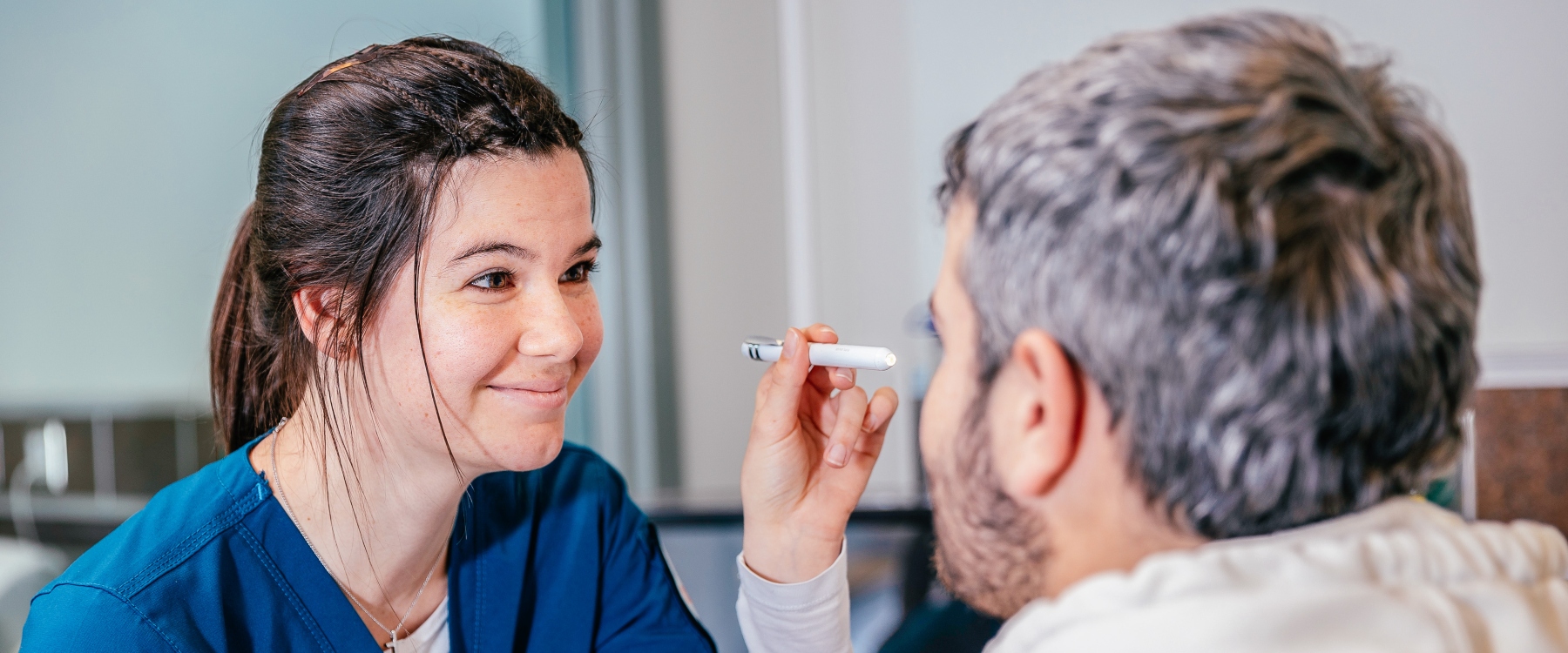Treating Substance Use Disorder
The School of Nursing is helping the entire state with substance use disorders

An initiative within the School of Nursing is helping the entire state of Idaho and its population of rural areas that have health professional shortages, especially as it pertains to behavioral health and substance use disorders. A grant of $900,000 from the Substance Abuse and Mental Health Services Administration (SAMHSA) was awarded to span the three years of this initiative.
In the grant application, Dr. Michelle Anderson, clinical associate professor and Doctor of Nursing Practice (DNP) coordinator for the School of Nursing, noted that “Idaho experienced 381 drug overdose deaths in 2022. Idaho’s suicide rate is the fifth highest nationwide and the entire state is considered a mental health shortage area.”
Unfortunately, with the high level of suicides and overdoses, the state’s existing providers cover only 25 percent of the current need, making the state in prime need for additional mental health care providers.
Idaho State University is taking on the challenge the state faces by educating students early in their professional coursework. ISU’s intention is to increase confidence and decrease stigma associated with treating patients with substance use disorder. An interdisciplinary cohort of DNP, public health, and counseling students are involved by observing and engaging with substance use disorder community experts to learn foundational best practice protocols and methods for substance use disorder assessment and treatment. Interventions include implementation of the SAMHSA 12 substance use disorder modules, interdisciplinary work among the health care students, synchronous and asynchronous work with students, community partners and subject matter experts.
Further interventions include the creation of a Community Advisory Committee for ongoing and real-time feedback to allow for appropriate content and activity adjustment.
Equally important is the implementation of direct clinical observation time for students within the community organizations, especially those that treat rural and culturally diverse populations, allowing for direct learning of curricular content.
Goals Include:
Training students early in their academic careers
- Provide evidence-based substance use prevention training
- Demonstrate increased confidence levels (assess, diagnose, treat)
Teach students that Sud is a chronic disease, thereby reducing stigma/ discrimination
- Teach motivational interviewing
- Complete three interdisciplinary activities and clinical observation
Increase access to screening, assessment, and services
- Provide substance abuse disorder assessment and treatment continuing education and continuing medical education (CE/CME) opportunities
- Establish a sustainability plan so that the substance abuse disorder curriculum becomes permanent
- Recruit additional community clinic sites
There were 119 students who completed the curriculum in the first year, with 52 expected students in subsequent years for a total of 210 students over the three-year project timeline. The number of students may increase due to establishing partnerships with the Idaho College of Osteopathic Medicine, Idaho State University Family Medicine Residency and the addition of certified registered nurse anesthesia students beginning in year two. Trained health professionals will have a profound impact on treatment in Idaho and the United States.
Amy Kernin-Laye, grant program coordinator said, “Approximately 210 students, with 178 in DNP, counseling, and graduate addiction studies earn the certificate over the course of three years. We will also have a residency for those who are interested enough to apply. There are financial incentives for students participating in the residency.”
The DNP students have an additional 16 dedicated observation hours with partnering clinics that treat patients in Idaho and Wyoming’s rural/underserved areas. The partners are committed to providing observation sites that address areas of patient need, especially diversity, to help improve students’ cultural competency. This rotation ensures students can observe, practice, and integrate the curriculum into real-life situations and, at a minimum, allows them to shadow professionals providing evidence-based treatment. Counseling students receive specialized training alongside supervised clinical placement in treatment clinics in Idaho, making them eligible to become Medication Attendant Certified through the National Board for Certified Counselors. This training and clinical experience will continue through the third year.
